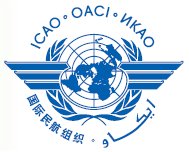ICAO addresses shortage of skilled aviation professionals

ICAO recently hosted a five-day event addressing the challenge posed by an anticipated shortage of skilled aviation professionals.
Representatives from States, industry, training institutions and students defined and quantified the problem, proposed approaches to solve the problem and outlined the leadership role of ICAO in generating cooperation among concerned stakeholders towards reaching and implementing solutions.
Statistics
- In the next 20 years, airlines will have to add 25,000 new aircraft to the current 17,000-strong commercial fleet
- By 2026, we will need 480,000 new technicians to maintain these aircraft and over 350,000 pilots to fly them
- Between 2005 and 2015, 73% of the American air traffic controller population is eligible for retirement





.png)

.jpg)



Comments
There are no comments yet for this item
Join the discussion